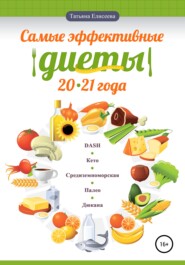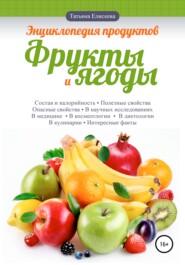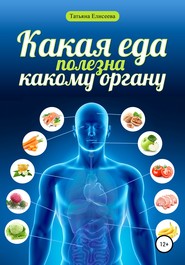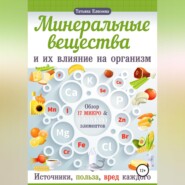По всем вопросам обращайтесь на: info@litportal.ru
(©) 2003-2025.
✖
Минеральные вещества и их влияние на организм человека
Настройки чтения
Размер шрифта
Высота строк
Поля
• зелено-черный язык;
• потерю аппетита и энергии;
• снижение веса;
• проблемы с нервной системой.
Элемент опасен при использовании в больших количествах продолжительное время. В таком случае увеличивается риск повреждения почек и других органов.
Взаимодействие с препаратами
Прием минерала вместе с лекарствами от диабета может привести к слишком низкому уровню сахара в крови. Микронутриент также может замедлить свертываемость крови, а его прием с лекарствами, которые замедляют свертываемость, увеличивает вероятность синяков и кровотечений.
Комментарий эксперта
Татьяна Елисеева, диетолог, нутрициолог
Ванадий вызывает интерес ученых и врачей благодаря биологической активности и широкому спектру действия. Он улучшает толерантность к глюкозе, ингибирует синтез холестерина. Количество исследований по его использованию в медицине постоянно растет и можно предположить, что новые препараты на основе минерала вскоре будут доступны для лечения многих опасных для жизни заболеваний. А пока можно получать вещество из общедоступных и недорогих продуктов питания, которые не относятся суперфудам.
Источникиинформации
1. Is vanadium of human nutritional importance yet? https://pubmed.ncbi.nlm.nih.gov/8046184/
2. Vanadium Ions and Proteins, Distribution, Metabolism, and Biological Significance, https://link.springer.com/referenceworkentry/10.1007/978-1-4614-1533-6_136
3. Vanadium content of selected foods as determined by flameless atomic absorption spectroscopy, https://pubmed.ncbi.nlm.nih.gov/838964/
4. Vanadium in foods and in human body fluids and tissues, https://pubmed.ncbi.nlm.nih.gov/684404/
5. Vanadium and diabetes, https://pubmed.ncbi.nlm.nih.gov/9823013/
6. Vanadium in Biological Action: Chemical, Pharmacological Aspects, and Metabolic Implications in Diabetes Mellitus, https://www.ncbi.nlm.nih.gov/pmc/articles/PMC6373340/
7. Oral treatment with vanadium of Zucker fatty rats activates muscle glycogen synthesis and insulin-stimulated protein phosphatase-1 activity, https://pubmed.ncbi.nlm.nih.gov/12190110/
8. Effects of diabetes, vanadium, and insulin on glycogen synthase activation in Wistar rats, https://pubmed.ncbi.nlm.nih.gov/11952162/
9. Effects of vanadyl sulfate on kidney in experimental diabetes, https://pubmed.ncbi.nlm.nih.gov/14555801/
10. Effect of vanadyl sulfate on the status of lipid parameters and on stomach and spleen tissues of streptozotocin-induced diabetic rats, https://pubmed.ncbi.nlm.nih.gov/16431126/
11. Metabolic effects of vanadyl sulfate in humans with non-insulin-dependent diabetes mellitus: in vivo and in vitro studies, https://pubmed.ncbi.nlm.nih.gov/10726921/
12. The antibacterial activity of polyoxometalates: structures, antibiotic effects and future perspectives, https://pubmed.ncbi.nlm.nih.gov/29355262/
13. In Vitro Anticandidal Activity and Mechanism of a Polyoxovanadate Functionalized by Zn-Fluconazole Complexes, https://pubmed.ncbi.nlm.nih.gov/29747400/
14. Biochemical and medical importance of vanadium compounds, https://pubmed.ncbi.nlm.nih.gov/22693688/
15. Vanadium suppresses sister-chromatid exchange and DNA-protein crosslink formation and restores antioxidant status and hepatocellular architecture during 2-acetylaminofluorene-induced experimental rat hepatocarcinogenesis, https://pubmed.ncbi.nlm.nih.gov/14678523/
16. Vanadium chemoprevention of 7,12-dimethylbenz(a)anthracene-induced rat mammary carcinogenesis: probable involvement of representative hepatic phase I and II xenobiotic metabolizing enzymes, https://pubmed.ncbi.nlm.nih.gov/11097089/
17. Solid state and solution studies of a vanadium(III)-L-cysteine compound and demonstration of its antimetastatic, antioxidant and inhibition of neutral endopeptidase activities, https://pubmed.ncbi.nlm.nih.gov/15149802/
18. Cardioprotection by vanadium compounds targeting Akt-mediated signaling, https://pubmed.ncbi.nlm.nih.gov/19423951/
19. Effects of oral vanadyl treatment on diabetes-induced alterations in the heart GLUT-4 transporter, https://pubmed.ncbi.nlm.nih.gov/9299359/
20. Characterization of vanadyl sulfate effect on vascular contraction: roles of calcium and tyrosine phosphorylation, https://pubmed.ncbi.nlm.nih.gov/9103536/
21. Vanadyl sulfate lowers plasma insulin and blood pressure in spontaneously hypertensive rats, https://pubmed.ncbi.nlm.nih.gov/7960024/
22. Influence of vanadium on serum lipid and lipoprotein profiles: a population-based study among vanadium exposed workers, https://pubmed.ncbi.nlm.nih.gov/24558984/
23. Vanadate enhances leptin-induced activation of JAK/STAT pathway in CHO cells, https://pubmed.ncbi.nlm.nih.gov/12646241/
24. Vanadium compounds in medicine, https://pubmed.ncbi.nlm.nih.gov/32226091/
25. Evaluation of lipid peroxidation and antioxidant defense mechanisms in the bone of rats in conditions of separate and combined administration of vanadium (V) and magnesium (Mg), https://pubmed.ncbi.nlm.nih.gov/29453945/
26. Effects of combined vanadate and magnesium treatment on erythrocyte antioxidant defence system in rats, https://pubmed.ncbi.nlm.nih.gov/21787646/
27. Vanadium: Risks and possible benefits in the light of a comprehensive overview of its pharmacotoxicological mechanisms and multi-applications with a summary of further research trends, https://www.ncbi.nlm.nih.gov/pmc/articles/PMC7152879/
28. Oral vanadyl sulphate does not affect blood cells, viscosity or biochemistry in humans, https://pubmed.ncbi.nlm.nih.gov/9140141/
29. Selective speciation improves efficacy and lowers toxicity of platinum anticancer and vanadium antidiabetic drugs, https://pubmed.ncbi.nlm.nih.gov/27751591/
Железо (Fe)
Железо – микроэлемент, необходимый для транспортировки кислорода и удаления углекислого газа. Когда запасы питательного вещества в организме сильно снижаются, клетки получают меньше кислорода и развивается железодефицитная анемия (ЖДА). Чтобы этого не произошло, нужно есть больше железосодержащих продуктов. Проблема в том, что они усваиваются по-разному и всасывание может составить всего 2%.
Зачем организму железо: запасы и функции
Организм не производит вещество, а только перерабатывает и сохраняет:
• 70% находится в гемоглобине, а остатки – в форме ферритина в печени, селезенке, мышечной ткани и костном мозге;
• гормон гепсидин регулирует его абсорбцию и распределение в организме;
• доставку микроэлемента по всему телу выполняет трансферрин – белок в плазме крови. [1]
Люди теряют минерал в малом количестве с мочой, калом. Большие потери происходят при потерях крови, из-за чего от дефицита страдают многие менструирующие женщины. [2]
Как выявить анемию: анализы, которые показывают железодефицит
Обычно врач подтверждает ЖДА с помощью общего анализа крови (ОАК), а точнее – тестов на гемоглобин и гематокрит. Выявить проблему на ранних стадиях, определить тяжесть состояния и способ лечения помогают другие показатели:












